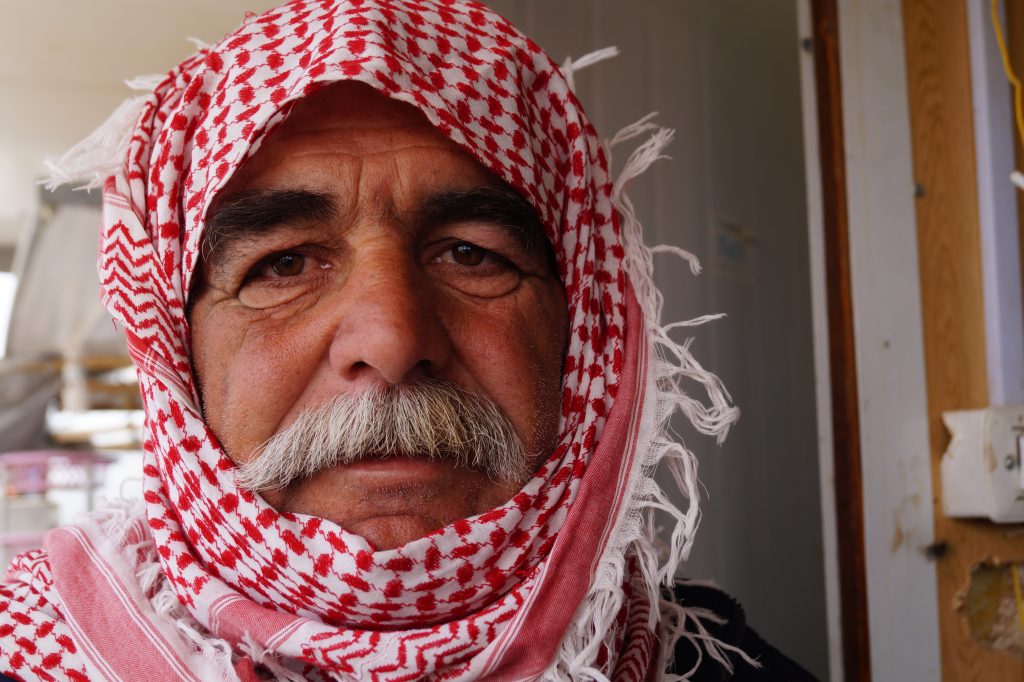
Za’atari: A Refuge From Bombs, but Not a Blast to Be a Resident (Part 1)
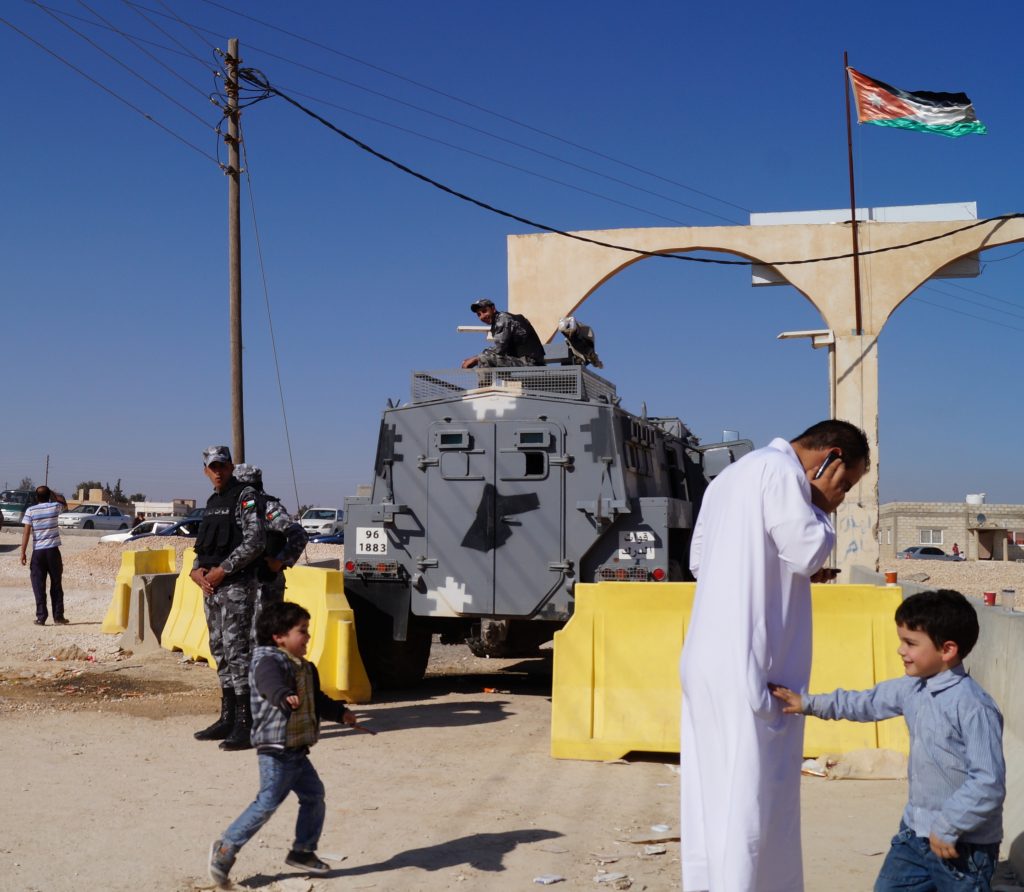
“The Arabs can’t have democracy.” This is what George, a Jordanian receptionist at Hotel Mariam in Madaba, tells me as I wait for the driver who the Jordanian press officer has arranged to bring me to Al Za’atari refugee camp.
Za’atari (near the Syrian border but inside Jordan) is the largest of the Syrian refugee camps, with approximately 130,000 inmates. I say “approximately” because the U.N. only has an idea of population since the refugees trickle out of the camp daily to run errands and some never return, instead becoming “illegals.” There are estimated to be 450,000 Syrian refugees living outside the camps in Jordan — Jordan’s population is just around 6.5 million.
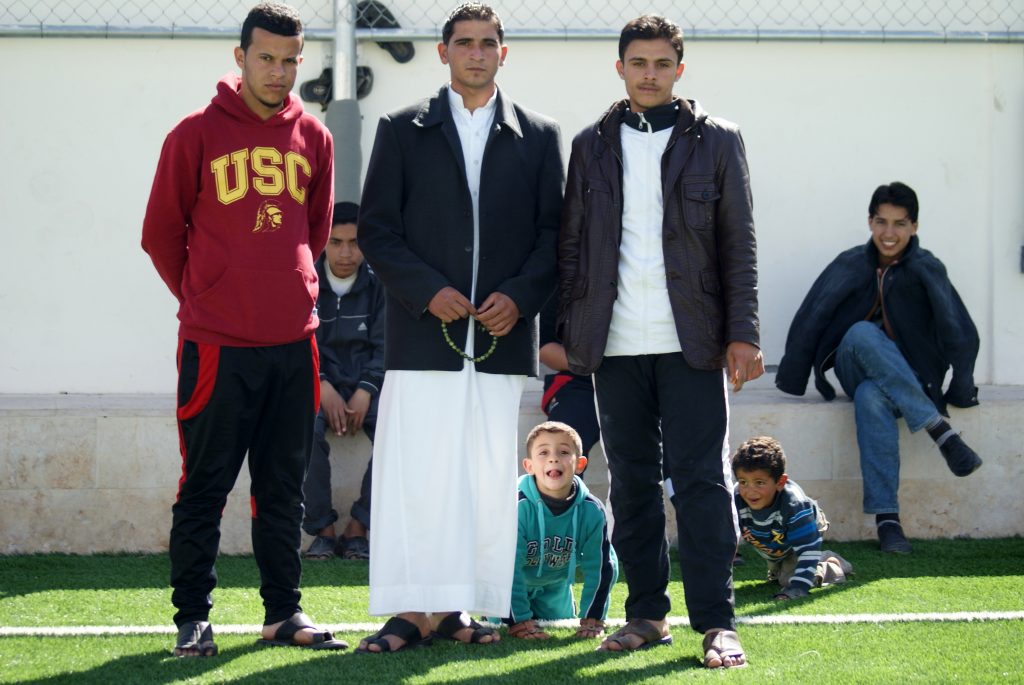
“Are you against Bashar?” George asks me (his mom is Syrian). It’s like asking me if I’m against Hitler or Stalin. Syria’s President Bashar al -Assad is a mass murderer. Another number the U.N. has stopped updating is the death toll in Syria, which is over 140,000 according to the Syrian Observatory of Human Rights (based in the UK).
It’s difficult to respond to George without a sarcastic joke, except Bashar al-Assad’s regime had Syrian caricaturist Ali Ferzat (head of the Arab Cartoonists’ Association) brutally beaten and his hands broken for his humor-loaded political drawings. I’d rather bite my tongue than allow the possibility of having it cut out in my future. “The Arabs can’t have democracy because of the religion,” George adds.
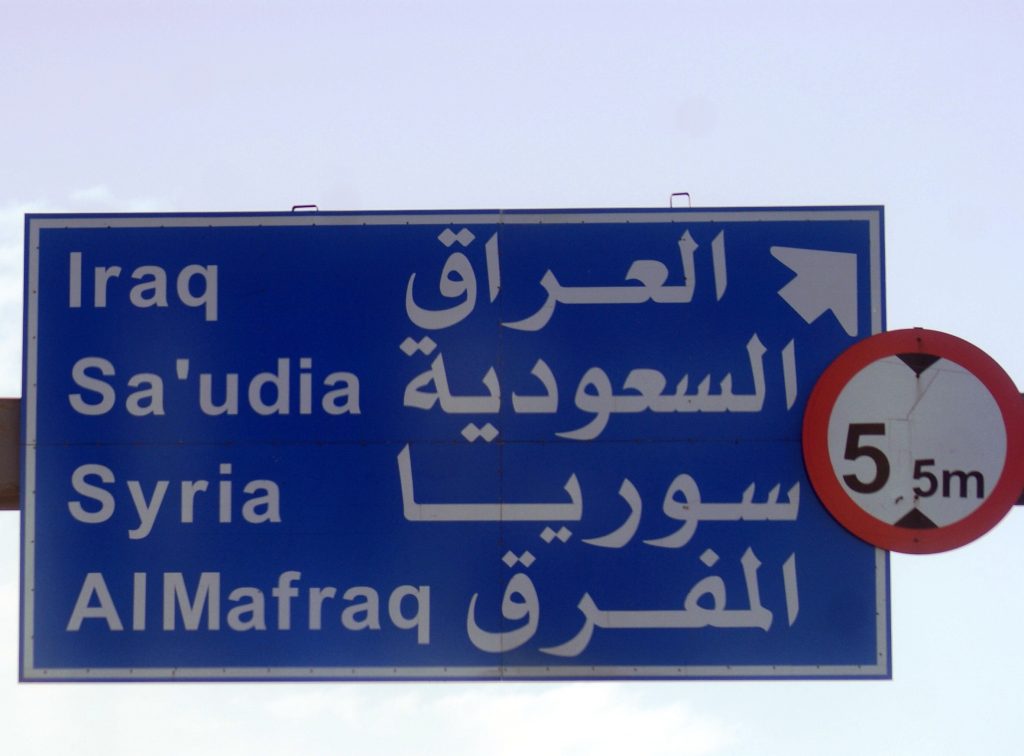
Not wanting full democracy is a Jordanian perspective which I’ve heard repeatedly over the past few weeks here. This doesn’t mean that Jordanians support Bashar’s atrocities by any means. Nobody I’ve met does. But Jordan is ruled by a king who appoints their prime minister and other government officials and judges. It’s not exactly a democracy here. However, the Jordanian king has appointed a Bedouin and a farmer to be prime minister in the past, according to Jordanian-Chechen tour guide Murad Arslan (Ministry of Tourism and Antiquities). Murad explained that it is important that rule remains this way in Jordan for stability (to avoid religious conflict) and so minorities such as women, Christians, and the Chechen people are represented in government. If seats in government were purely based upon election numbers and not reserved for minorities within the population, he said the country would become Palestinian, and he’s certain internal and religious conflict would happen. The Palestinians (former refugees who are estimated to be more than half of Jordan’s population now) have been integrated into Jordanian society. Jordan takes in so many refugees that if it became a full-out democracy, it would no longer be the Hashemite Kingdom of Jordan, which is a pretty great place.
Of course a Palestinian driver I hired here had a different point of view, and was outspoken against King Abdullah II, corruption and nepotism. Still, there is a feeling of safety and stability in Jordan. Jordan is the friendliest and most welcoming country I’ve ever visited in my life. Strangers invite you to supper.
Save the children, Obama. You are the president most able to save the children in the world and this is no place for children to live.” — Amal Ghazzwi, a Jordanian teaching head
Living in Za’atari (It’s Better Than Being Dead)

I choke on cigarette smoke so thick it’s reminiscent of an ’80s nightclub. I’m inside the UNHCR (United Nations High Commissioner For Refugees) registration offices at Za’atari. My translator and guide for the day, Manal Salem al Ahmad, is a refugee and former English teacher. Some of her family managed to escape Syria a year and a half ago. As we wait for my permission papers to be recorded (probably so they know where to send my body bag or ransom note), she tells me about the bombings, killings, how not all her family made it to Jordan, how they arrived on foot with nothing — the utter terror. She says she believes the rest of the world wants Bashar in power or he wouldn’t be in power. I know my stupid tears that are welling uncontrollably are due to her, not the smoke, or my own fear, but I cover my emotions in front of the UN’s chain-smoking administrative soldiers.
A military captain points out the dangerous areas of camp to avoid on the massive wall map showing all the “districts.” I see District 9 on the map and think of the film. Za’atari’s District 9 (there are 12) has about 8,000 inhabitants, 700 tents, and 1500 “caravans” — a nice name for the small modular shacks that house the refugees.
Manal and I will start with District 2, 3 and 4.We’ll visit schools, hospitals and a market on a dirt street dubbed Champs-Élysées. The hot captain warns me to avoid crowds in the city and gives me his Hotmail address. The camp is now the fourth-largest city in Jordan. Manal and I exit the registration offices and a minute later are in a crowd.
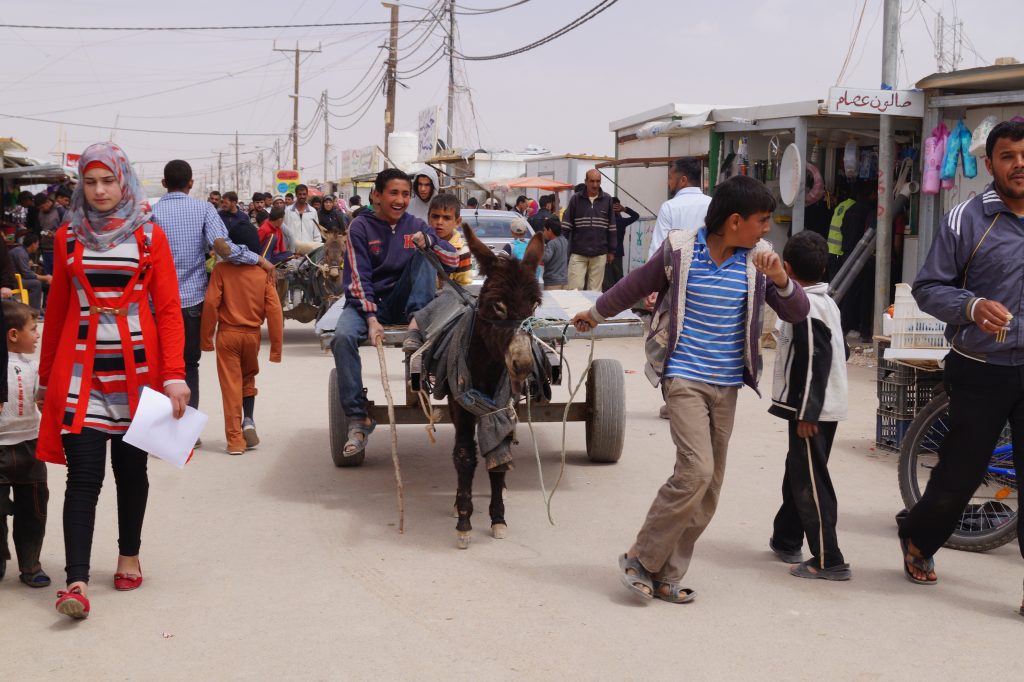
Before I’d arrived I’d percolated a plan to sample the coffee at Za’atari’s shops. I aborted the plan instantly. A shopkeeper says I should be dressed like the Syrian women and Manal tells him to mind his own business. A beggar thrusts his hand out to me and people push and pull me to take their photographs. I don’t dare take out a single dinar to purchase coffee as I’m certain I’ll be swarmed. A boy drags another boy by his head down the street and nobody does anything. Murad Arslan is right — it’s like “Lord of the Flies” living in this place.
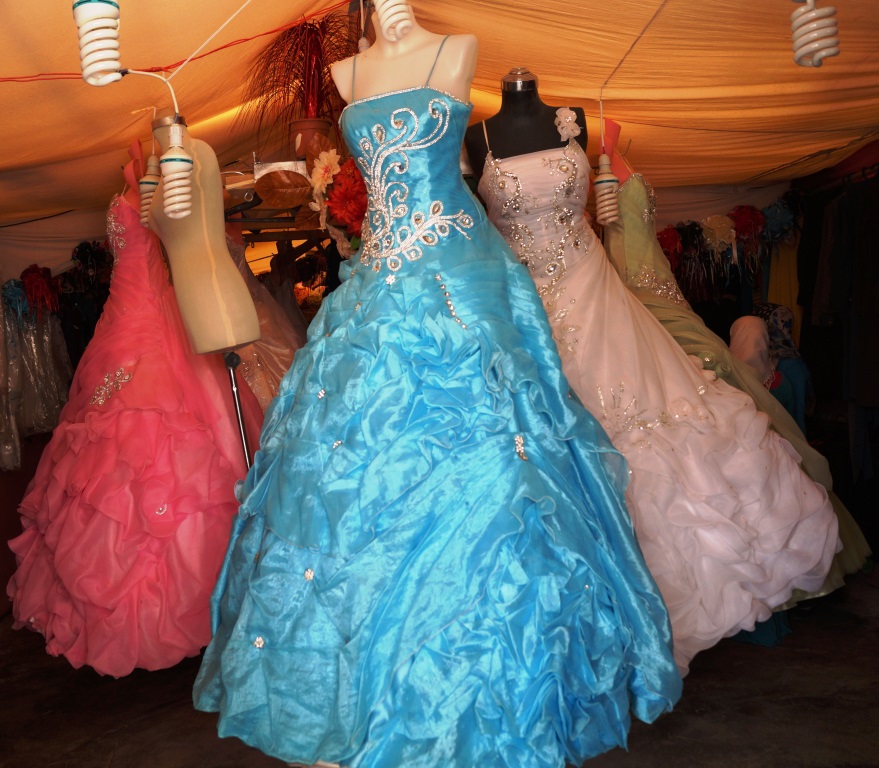
Manal explains that some people are homeless within the camp, even children. She also says that produce in the market is very expensive. The Syrians bring it from outside the camp by wheelbarrows and wheelchairs. I see satellite dishes for sale, broken washing machines, and a former Syrian soldier has a wedding dress boutique. He asks me to help him get out of the camp and go to Canada, but he won’t let me photograph him with his puffy dresses.
Many girls are being married as young as 14, which Etedal Khalil Abu-Darweesh, a Jordanian teaching head at the Bahrain school in the camp, says is normal in Syria anyway. She says that out of her 2,000 girl pupils in the senior division, there are 30 married girls who attend classes. She shows me her class sizes. They’re in the hundreds. One class has 172 teenage girls packed into it. Each class has just one teacher and one assistant. There are only 34 Jordanian teachers and 24 Syrian assistant teachers (women who had been teachers professionally at home.) The Syrians aren’t allowed to teach at the camp because the curriculum is Jordanian.
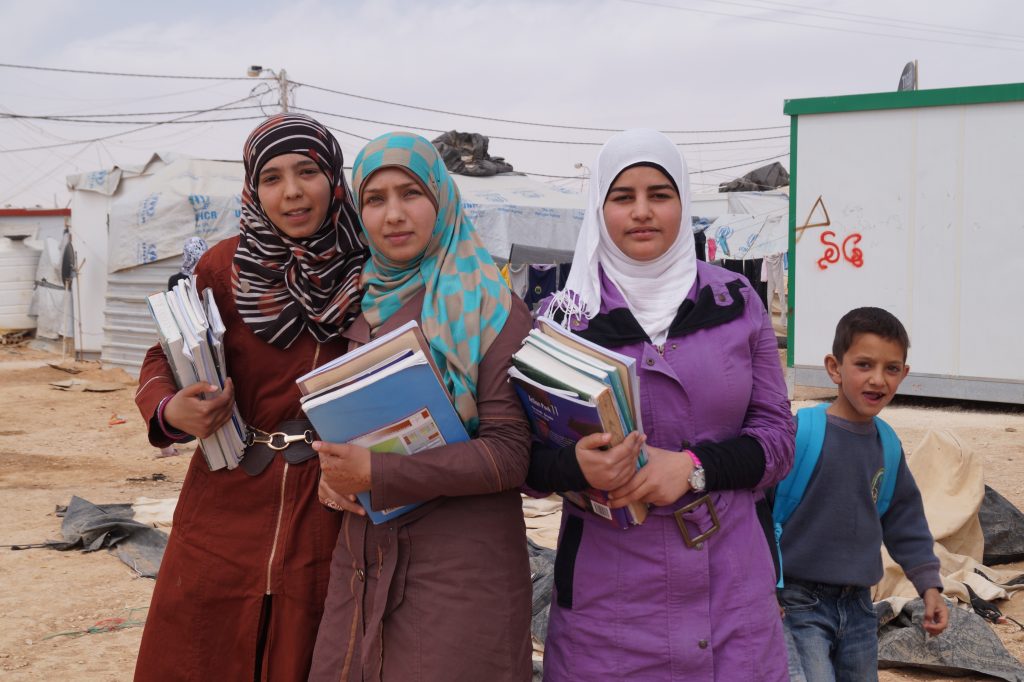
There is serious Syrian resentment about this, but I have a sneaking suspicion as to why it’s like this: the people who stay in Za’atari are prisoners in part by their own hope that the conflict will end and that they will get to return home. They must stay in the camp to keep their Syrian citizenship and receive relief. My guess is that Jordan is preparing for their long stay and the Syrians, like the Palestinian refugees, will be assimilated as there will be no end to this conflict, and no return home. The Jordanian school curriculum is preparation for them to become Jordanians. Manal refused to be a teaching assistant and believes she’ll get to teach again when she goes home. She has so much hope. Hope is vital, but it also stops the refugees from leaving camp, immigrating, or jumping into a possibly permanent new life outside of Syria. Hope is partly what keeps them in their prison at Za’atari.
A Syrian teaching assistant gives me a message for Obama: “Help, help, because you can stop the killing [in Syria], but you don’t!”
At the junior school for girls, the class sizes and numbers are similar. But the message I receive for Obama is mixed. Amal Ghazzwi, a Jordanian teaching head, says passionately, “Obama, go away from Arabian countries!” Then in her next breath she says, “Save the children, Obama. You are the president most able to save the children in the world and this is no place for children to live.” What surprises me is that her mixed message makes sense in this land that makes no sense.
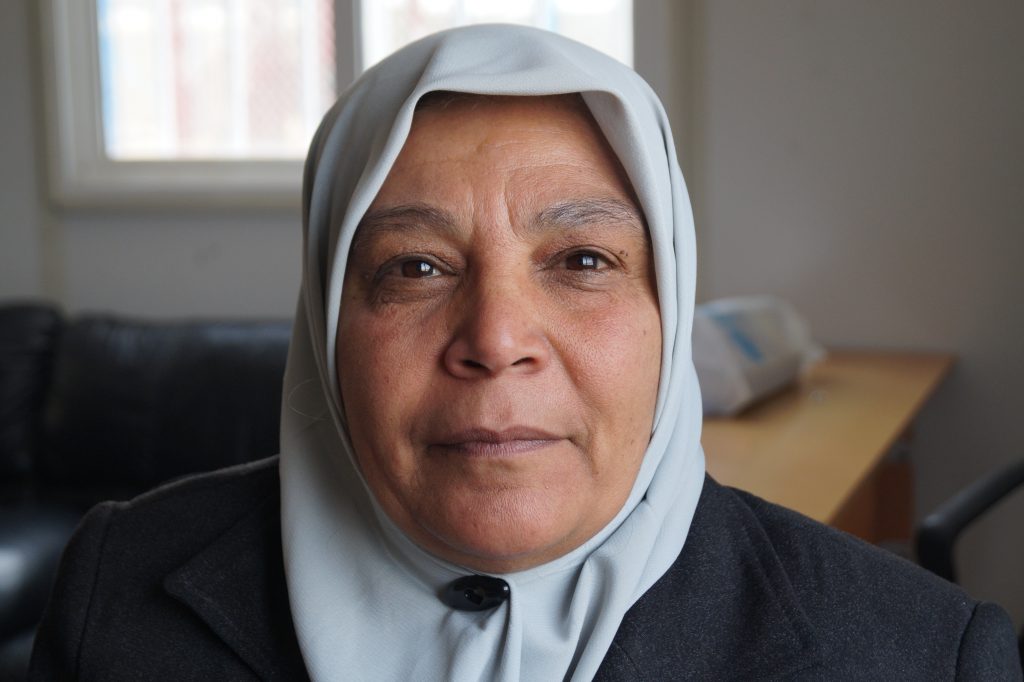
Part 2, “Lies and Illness“ will detail how UNHCR administrators at a camp hospital out and out lie, while Part 3, “The Not-So-Great Escape,” will detail the lives of Syrians in Jordan living outside the camps and how an NGO helps a Syrian woman set up a sewing business even though helping Syrians to start businesses is forbidden.
Kirsten Koza is the author of “Lost in Moscow” and is a humorist and adventurer.






5 Comments
Leave a Reply